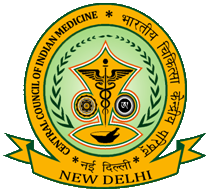
Ayurveda is an alternative medicine system with historical roots in the Indian subcontinent. It is heavily practiced throughout India and Nepal, where as much as 80% of the population report using ayurveda. The theory and practice of ayurveda is pseudoscientific and toxic metals such as lead are used as ingredients in many ayurvedic medicines.
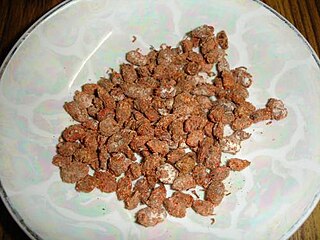
Unani or Yunani medicine is Perso-Arabic traditional medicine as practiced in Muslim culture in South Asia and modern day Central Asia. Unani medicine is pseudoscientific. The Indian Medical Association describes Unani practitioners who claim to practice medicine as quacks.

University Grants Commission is a statutory body under Department of Higher Education, Ministry of Education, Government of India. It was set up in accordance to the UGC Act 1956 and is charged with coordination, determination and maintenance of standards of higher education in India. It provides recognition to universities in India, and disbursements of funds to such recognized universities and colleges. The UGC headquarters are in New Delhi, and it has six regional centres in Pune, Bhopal, Kolkata, Hyderabad, Guwahati and Bangalore. A proposal to replace it with another new regulatory body called HECI is under consideration by the Government of India. The UGC provides doctoral scholarships to all those who clear JRF in the National Eligibility Test. On an average, each year ₹725 crore (US$87 million) is spent on doctoral and post-doctoral fellowships by the commission.

Siddha medicine is a form of traditional medicine originating in southern India. It is one of the oldest systems of medicine in India.
Bachelor of Ayurvedic Medicine and Surgery (B.A.M.S.) is a professional degree focused on Ayurveda offered in India, Nepal, Bangladesh, and Sri Lanka.
The Ministry of Ayush, a ministry of the Government of India, is responsible for developing education, research and propagation of traditional medicine and alternative medicine systems in India. Ayush is a name devised from the names of the alternative healthcare systems covered by the ministry: ayurveda, yoga and naturopathy, Unani, Siddha, Sowa Rigpa, and homeopathy.
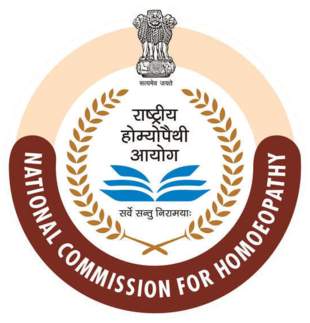
The National Commission for Homoeopathy is a statutory body under the Ministry of AYUSH, Government of India. Central Council of Homoeopathy was set up by the Government of India in 1973. The National Commission for Homoeopathy was constituted on 5 July 2021 and on the same date, the Homoeopathy Central Council Act, 1973 was repealed and the Central Council of Homoeopathy was superseded. It is one of the Professional Councils of University Grants Commission (UGC), formed to monitor higher education in India. Any institution desiring to grant a qualification in homeopathy is required to apply to the Council, which prescribes course curriculum and maintains central registers of homeopaths.
The Homoeopathy Central Council Act, 1973,, is a now-repealed Act of the Parliament of India to primarily structure the role of the Central Council of Homoeopathy and to enable the regularization of the maintenance of a central register of issues and entities related to the field of homoeopathy. It included five chapters when it was initially passed. The Act was amended in December 2002, via Homoeopathy Central Council Amendment Act, 2002. The Act was replaced by the National Commission for Homoeopathy Act, 2020 with effect from 7 October 2020.
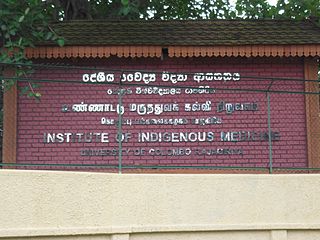
The Faculty of Indigenous Medicine of the University of Colombo, specialising in Ayurveda and the Sri Lankan traditional medicine. Founded as the College of Indigenous Medicine in 1929, it became part of the University of Colombo adopting its current name in 1977. It is a premier center of undergraduate and postgraduate study and research into Ayurveda and Indigenous Medicine and Healthcare.
Thrissur Ayurveda cluster is an Ayurveda cluster situated in KINFRA Park in Koratty in Thrissur District. The cluster is meant for a comprehensive development of Kerala brand of Ayurvedic products and train the manufacturers of Ayurveda products on the importance of safety, quality and efficacy. The cluster have facilities for testing and analysis, process product validation, safety study and manufacture. The cluster is approved by the Department of Ayurveda, Yoga & Naturopathy, Unani, Siddha and Homoeopathy (AYUSH).

Central Research Institute of Unani Medicine or CRIUM Hyderabad, established in December 1971, is an Indian Government-sponsored Unani medicine research center and out-patient clinic located in Hyderabad, India. The institute was upgraded to National Research Institute of Unani Medicine for Skin Disorders (NRIUMSD), by Shripad Naik, Minister of State (IC) for AYUSH in November 2019. The Institute is well known for its successful treatment in the skin condition of vitiligo, treating more than 150,000 patients.

Hakim Syed Khaleefathullah is an Indian physician and the founder of Niamath Science Academy, known for his scholarship and expertise in the alternative medicine system of Unani. He was honoured by the Government of India, in 2014, with the Padma Shri, the fourth highest Indian civilian award, for his contribution to the field of medicine.
Paneenazhikath Narayana Vasudeva Kurup was an Indian Ayurvedic practitioner, researcher, writer and the founder director of the Central Council for Research in Homoeopathy (CCRIMH). He is a former vice chancellor of the Gujarat Ayurved University, Jamnagar and a former advisor of the Indian Systems of Medicine and Homoeopathy (ISM&H) of the Ministry of Health and Family Welfare. He has published several articles and a book, A Handbook on Indian Medicinal Plants, on the traditional Indian medicine system, The Government of India awarded him the fourth highest civilian honour of the Padma Shri, in 2005, for his contributions to Indian medicine.
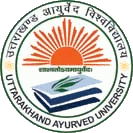
Uttarakhand Ayurved University is a public state university located at Dehradun, Uttarakhand, India. It was established in 2009 by the Government of Uttarakhand through the Uttarakhand Ayurved University Act, 2009. It focuses on teaching and research of Ayurveda, as well as other areas of AYUSH. Sunil Kumar Joshi was appointed vice chancellor in 2020.
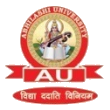
Abhilashi University (AU) is a private university located in Chailchowk, in Mandi district, Himachal Pradesh, India. The university was established in 2015 by the Abhilashi Educational Society through the Abhilashi University Act, 2014.
Homoeopathy University is a private university located in Jaipur, Rajasthan, India. It was founded in 2010.
National Council for Tibb is a body corporate, established under section 3 of The Unani, Ayurvedic and Homoeopathic Practitioners Act, 1965, to promote the Unani and Ayurvedic system of medicine. It is responsible for developing curriculum, education and examination of Tibb-e-Unani and Ayurveda and for registration of Tabibs/Hakims and Vaids who passed the examination.

The standard entry-to-practice degree in modern evidence-based medicine in India is the Bachelor of Medicine and Bachelor of Surgery (MBBS). Alternative systems of Medicine in India are Ayurveda (BAMS), Unani (BUMS), Siddha(BSMS), Homeopathy (BHMS). M.B.B.S. a credential earned upon completion of a five-and-a-half-year undergraduate program. The curriculum is divided into one year of preclinical studies in general science subjects and three and a half years of paraclinical and clinical studies, followed by a one-year clinical internship. Before beginning the internship, students are required to pass several examinations, the final one of which is conducted in two parts. Postgraduate education in medical specialties typically takes 3 additional years of study after the MBBS and concludes with the award of a Master of Surgery or Doctor of Medicine(MD). Postgraduate diplomas in medical specialities may also be awarded upon the completion of two-year training programs. After that a person can further get a degree in superspeciality in his or her respective branch after successful completion of 3 years of superspeciality in a medical college.
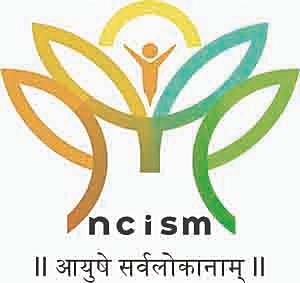
The National Commission for Indian System of Medicine is a statutory and regulatory body of 29 members, formed by Government of India for framing policies for institutions engaged in Indian System of Medicine and medical professionals. It replaced the Central Council of Indian Medicine on 07 October 2020. The institution will have Boards of assessment and rating and Board of ethics and registration of practitioners of Indian systems of medicine. This commission is working under Ministry of Ayush and will govern the Board of Ayurveda and Unani and the Board of Unani, Siddha and Sowarigpa.
